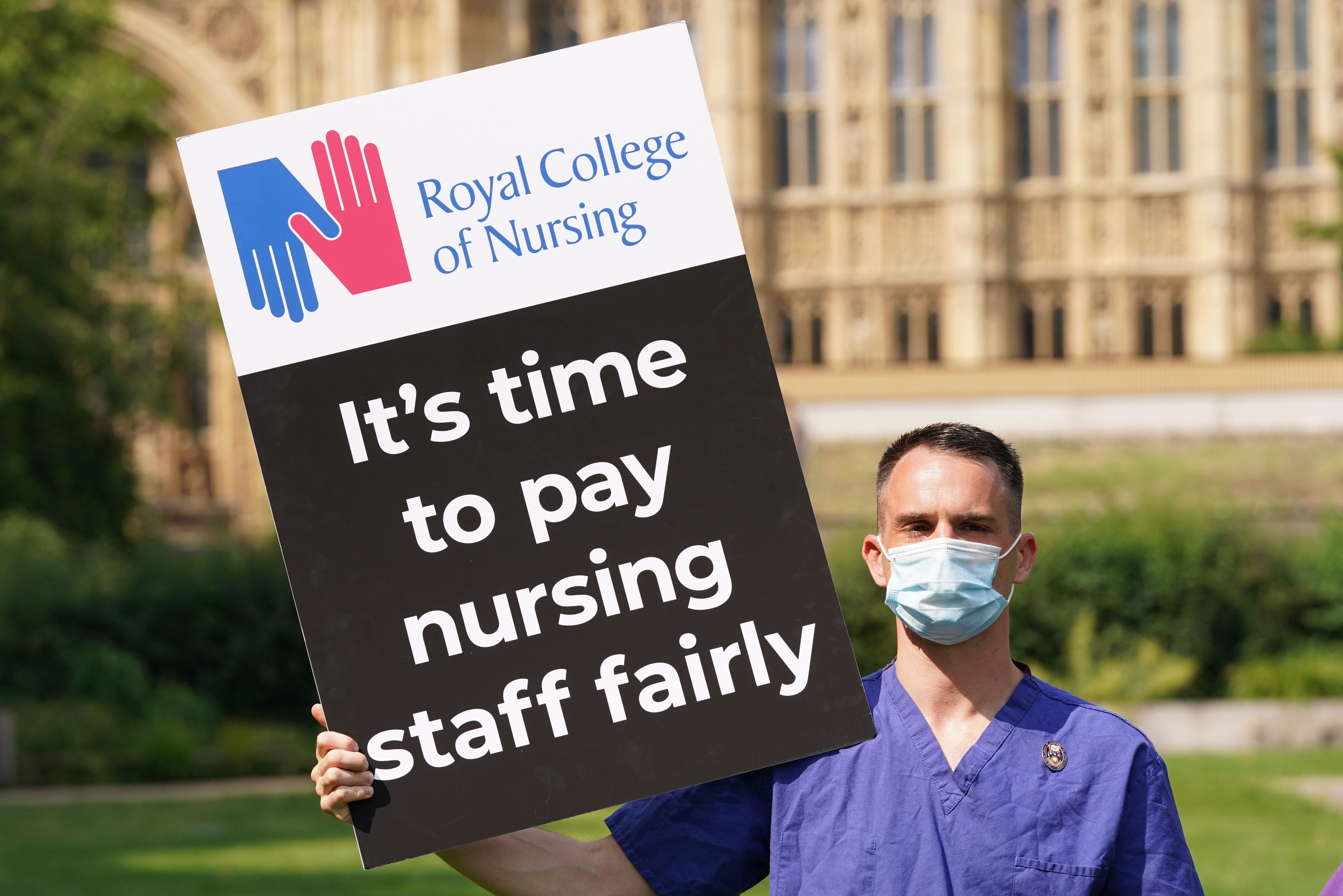Will Boris Johnson turn the NHS pay row into yet another culture war?
Strike action in the health sector is always difficult because it looks as though poorly people fighting for their lives are the targets and victims, writes Sean O’Grady


For obvious reasons even normal times there are few more politically volatile issues than nurses’ pay. In a second year of the covid pandemic, after the “clap for carers”, Sir Tom Moore’s high-profile appeal and innumerable examples of selflessness, saving lives without proper protection and some making the ultimate sacrifice, this year’s NHS pay settlement demanded careful and sensitive treatment. It’s fair to say that ministers’ handling of it fell some distance short of it appearing in the textbooks as a case study in successful governance. And now they don’t even have Matt Hancock around to carry the can.
The net result of the last few days of mixed messages, zig-zagging, pulled parliamentary statements, and general confusion is that the government has ended up in the worst of all worlds. The initial offer of 1 per cent might have been worth fighting over for the sake of the public finances, given that the NHS is such a huge employer and the bill for pay and pensions so high, but instead the government – in England and Wales – has succumbed to pressure in such a confused manner that its 3 per cent offer has managed to disgust all concerned.
The idea that 1.5 per cent of it would be a one-off bonus was adopted and then abandoned within hours, and the 3 per cent will now be permanent, still inexplicably 1 per cent below the level offered by the Scottish government. It is also way short of what the unions and the Royal College of Nurses are demanding – 12.5 per cent and upwards, and of course it excludes “junior” doctors (ie anyone below the rank of consultant, who, as it happens, are having a 1 per cent pay rise). Care and agency workers not directly employed by the NHS will also have different pay arrangements. The recent award of the George Cross probably doesn’t make up for a pay rise below rapidly rising inflation. Or will it fix the 80,000 vacancies in the NHS. Nor does the government want to say whether the higher pay settlement (ie from 1 per cent to 3 per cent) will be “new” money or somehow surgically sliced out of existing budgets.
Elements of the press can be relied upon to find wild-eyed Maoists down the pub playing cards when they should be intubating the sick
NHS workers fear the worst, and the nurses are preparing strike action. Politically, and cynically, this indicates an escape route for the prime minister and his colleagues. As so often when they find themselves in a tight corner, the most attractive option is to turn the issue into a culture war. First, the prime minister can try and turn private sector workers against public sectors workers, because many in the private sector have lost their jobs, been furloughed or had a pay cut. That has been much less common in the public sector and probably unknown anywhere in the NHS. He has said as much already, and may be expected to turn the volume up.
Second, if the nurses do take any kind of industrial action, such as an overtime ban or work to rule, the government can call them heartless and/or blame the Marxists running the Royal College of Nursing and Unison for the resulting “chaos” and lost lives. Strike action in the NHS is always difficult because, whatever assurances are given, it looks as though poorly people fighting for their lives are the targets and victims of industrial action by “extremists”. Doing that while Covid is raging across the land seems callous. Elements of the press can be relied upon to find wild-eyed Maoists down the pub playing cards when they should be intubating the sick, even if such episodes take place in the imagination of their reporters.
Realistically the nurses and others would only win another 1 or 2 per cent for their pay award, which translates, even with minimum guaranteed absolute terms increases, into what sounds to much of the public (who may have had no rise or a cut) unreasonably small amounts given the suffering caused (or supposed to be caused). Few would support the nurses getting a 15 per cent rise, say, even after what they’ve been through. For Labour, the question will always be how they would pay for a larger increase in NHS pay, which is never a comfortable one.
In the court of public opinion, then, there is every chance that the unions might actually snatch defeat from the jaws of victory, and somehow manage to make the callous, incompetent Johnson government appear compassionate and decisive. Johnson has been an unusually lucky leader in the enemies that have faced him; could it possibly happen again?
Subscribe to Independent Premium to bookmark this article
Want to bookmark your favourite articles and stories to read or reference later? Start your Independent Premium subscription today.



Join our commenting forum
Join thought-provoking conversations, follow other Independent readers and see their replies
Comments